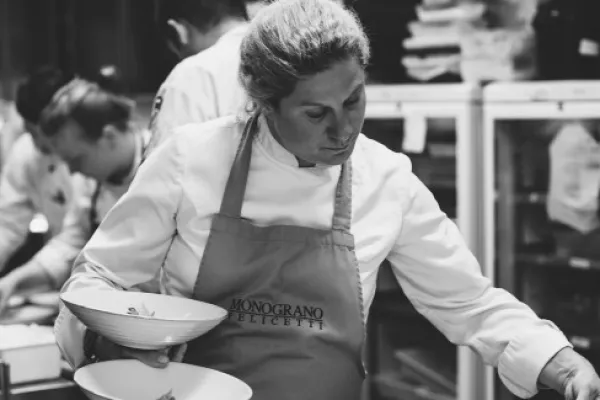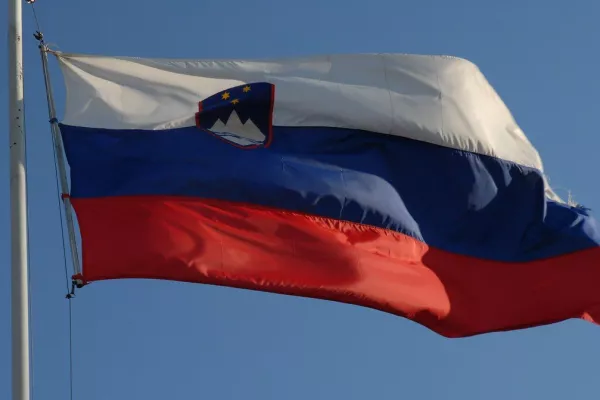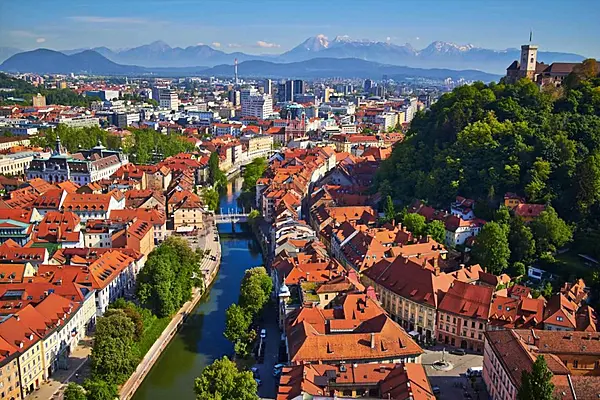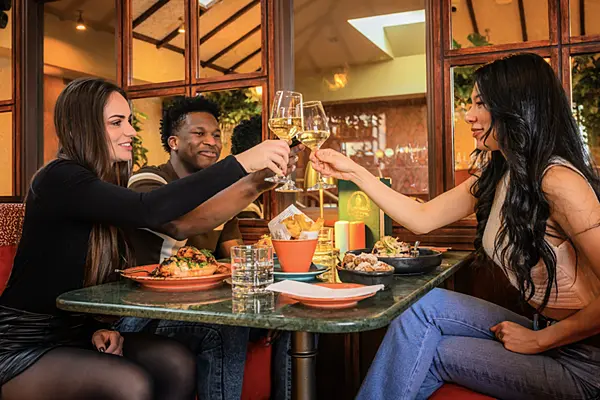Ana Roš is the most unlikely of chefs. She never wanted to be one and she never studied cooking.
So how come she won the title of World’s Best Female Chef this year?
It's quite a story.
"I come from a society that doesn’t have a tradition of gastronomy, where cooking is not a prestigious job," she says in an interview at her isolated hotel restaurant Hiša Franko in a valley in western Slovenia.
These days, diners make the journey from as far away as Australia, and you need to book months ahead. Roš never saw that coming.
As a teenager, she was a talented sportswoman: a keen skier at the national level.
"But I wasn’t a winner," she says. "It wasn’t in my psychology. I always came second, so I quit when I was 17."
She went on to study International Science and Diplomacy in Trieste, though her Italian was shaky: "My parents sent me to Puglia to learn, but I spent the summer hanging out with my friends instead."
Still, she went on to be offered a job at the European Commission in Brussels, and it was only then that she finally made the decision to abandon her dream of a career in diplomacy and try the restaurant business instead.
She had fallen in love and her husband’s parents – the owners of Hiša Franko – had decided to retire. It was the year 2000. She and husband Valter – a sommelier – decided to take over the business. She’d never been particularly interested in food as a child, only visiting restaurants for birthdays and other special occasions. But Valter loved food and together they started traveling around Europe, dining at some of the continent’s best restaurants.
There was just one problem: When they returned to Hiša Franko, they didn’t like the old-fashioned Slovenian food.
"One day, my husband and I sat down and discussed that someone needs to take over the kitchen," she says. "He said he didn’t have time, so I said, ‘I’ll do it.’ I didn’t think twice. The first five years were a learning process. I was struggling: reading books and going to conferences and trying out things. But you know how it is when you are dumped in the water and you don’t know how to swim."
We’re talking in the garden of Hiša Franko, which sits in the Soča valley. The air is pure and tree-covered hillsides sit below clear blue skies. Herbs and vegetables grow on a slope behind the restaurant and other produce is foraged in the valley.
The menu costs €85 euros for six courses and €120 for 11. The dishes are seasonal and may include marble trout, green peas, blackcurrants, fermented trout liver; and tripe, duck jus, cave cheese, fried nettles and chanterelles. The flavours are bold and the focus is on the ingredients rather than fancy modern cooking techniques.
The restaurant ranks No. 69 in the world, according to the World’s 50 Best Restaurants organisation, which presented her with the Best Female Chef accolade in Melbourne on April 5.It’s a beautiful spot to dine or to sit and sip Slovenian sparkling wine on a summer’s afternoon. But it’s not somewhere you would expect a destination restaurant. Let’s face it, Slovenia isn't famed for its food, which is a melting pot of influences from neighbouring Italy (the border is a few kilometers from Hiša Franko), Austria, Hungary and Croatia.
So how did Roš put it on the map?
Much of the recent international success is down to Netflix, which featured her in an episode of Chef’s Table in 2016. Roš doesn’t watch TV and had never heard of the show. She’d appeared on TV previously and didn’t expect the phone to start ringing.
"So when Netflix came out on May 27 last year, at first it was the same. But we didn’t realize the time difference meant it was morning in the States. By the evening, our reservations system had broken down and visits to our web page went from 200 to 10,000 a day."
The Best Female Chef quickly followed. It’s a controversial award in the sense that critics say it is ridiculous to have a separate category for a female chef.
So what does Roš say to that?
"I had chef friends who said I should go on the stage and say I am not accepting it," she says, and laughs. "I said: 'Did you ever say no to an award?' So here is my explanation. It is very clear for a woman in a male world, it’s always going to be difficult. A woman has so many roles - as a mother, as a wife, as a lover, as a housekeeper - and then you try to fit in 14 or 16 hours working.
"The best chefs in this world - look at Massimo Bottura, look at Rene Redzepi - they have great wives. They are 100 per cent on their work because it’s taken care of, their children, it’s taken care of their private life. They come home probably somebody even cooks for them and has time to chat to them.
"Do you think that happens to a woman? You can never compare these two different worlds."
News by Bloomberg - edited by Hospitality Ireland









